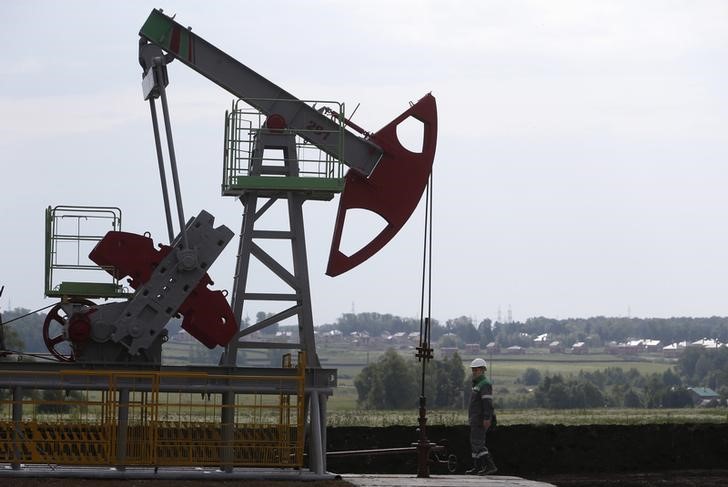Investing.com -- Oil prices on Wednesday settled below $70 a barrel for the first time since June, as a larger-than-expected draw in weekly U.S. inventories failed to coax the bulls out of hiding amid fears about supply glut blunting the impact of OPEC+ supply cuts set for early next year.
At 14:30 ET (19:30 GMT), the U.S. crude futures traded 4.1% lower at $69.38 a barrel and the Brent contract dropped 3.8% to $74.30 a barrel.
Larger US inventories draw takes backseat to supply surplus fears
Data from industry group the American Petroleum Institute showed that oil inventories grew 594,000 barrels in the week to Dec 1, compared to expectations for a draw of over 2 million barrels.
Weekly U.S. crude inventories fell by 4.6M barrels, compared with estimates for a decline of $1.03M, while gasoline supplies jumped by 5.4 barrels, well above expectations for a build of 1M.
The jump in gasoline supplies come just as data showed earlier this week that daily U.S. oil production hit a record high in September, adding to concerns that growing non-OPEC supply will offset the impact of the OPEC+ pledged cuts of 2.2 million barrels a day slated for early next year.
U.S. jobs data add to economic concerns
Along with worries that OPEC+ won’t be able to curtail supply levels next year, concerns are growing about cooling global economic activity next year, and thus the associated demand for crude.
Data released earlier Wednesday showed that U.S. private payrolls growth unexpectedly slowed in November, in another sign that the Federal Reserve's aggressive campaign of interest rate hikes could be hitting U.S. economic growth.
This follows ratings agency Moody downgraded its credit outlook on China, and flagged increased economic risks to the country from a property market downturn and a lack of government stimulus.
China is the world’s largest oil importer, and has steadily built up its oil inventories this year- a trend that could see the country wind down oil imports in the coming months, especially if economic conditions worsen.
Concerns over China were also coupled with weak economic prints from most major economies. PMI data from Japan, the U.S. and the eurozone largely underwhelmed in November.
Saudi Arabia reduced its official selling price for most of the buyers for January deliveries this week due to subdued oil demand and softer oil prices.
(Peter Nurse, Ambar Warrick contributed to this article.)
Upgrade your decision-making with InvestingPro+! Using discount code “INVESTPRO” receive an additional 10% off the InvestingPro+ yearly subscription. Click here and don't forget the discount code.
